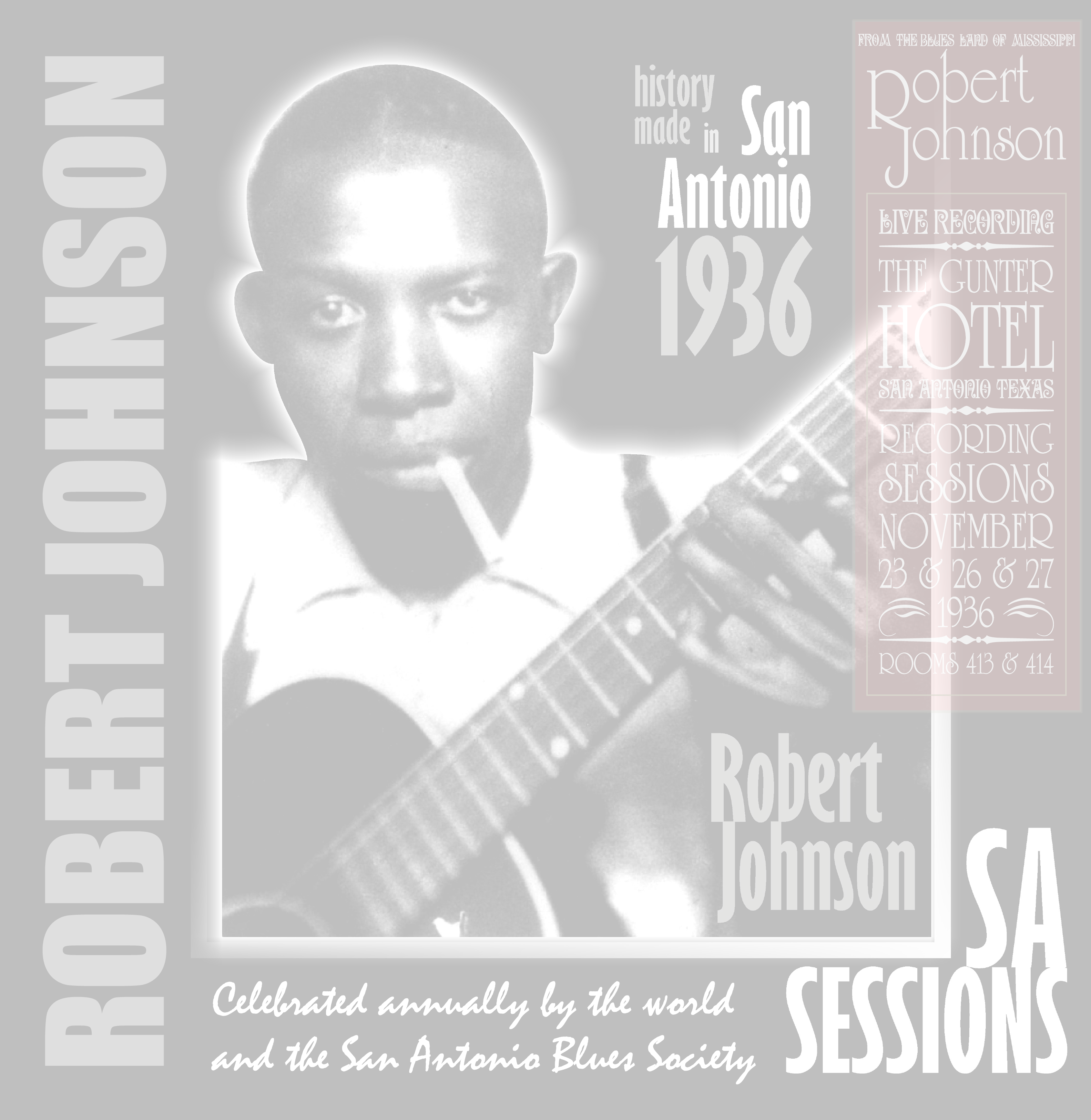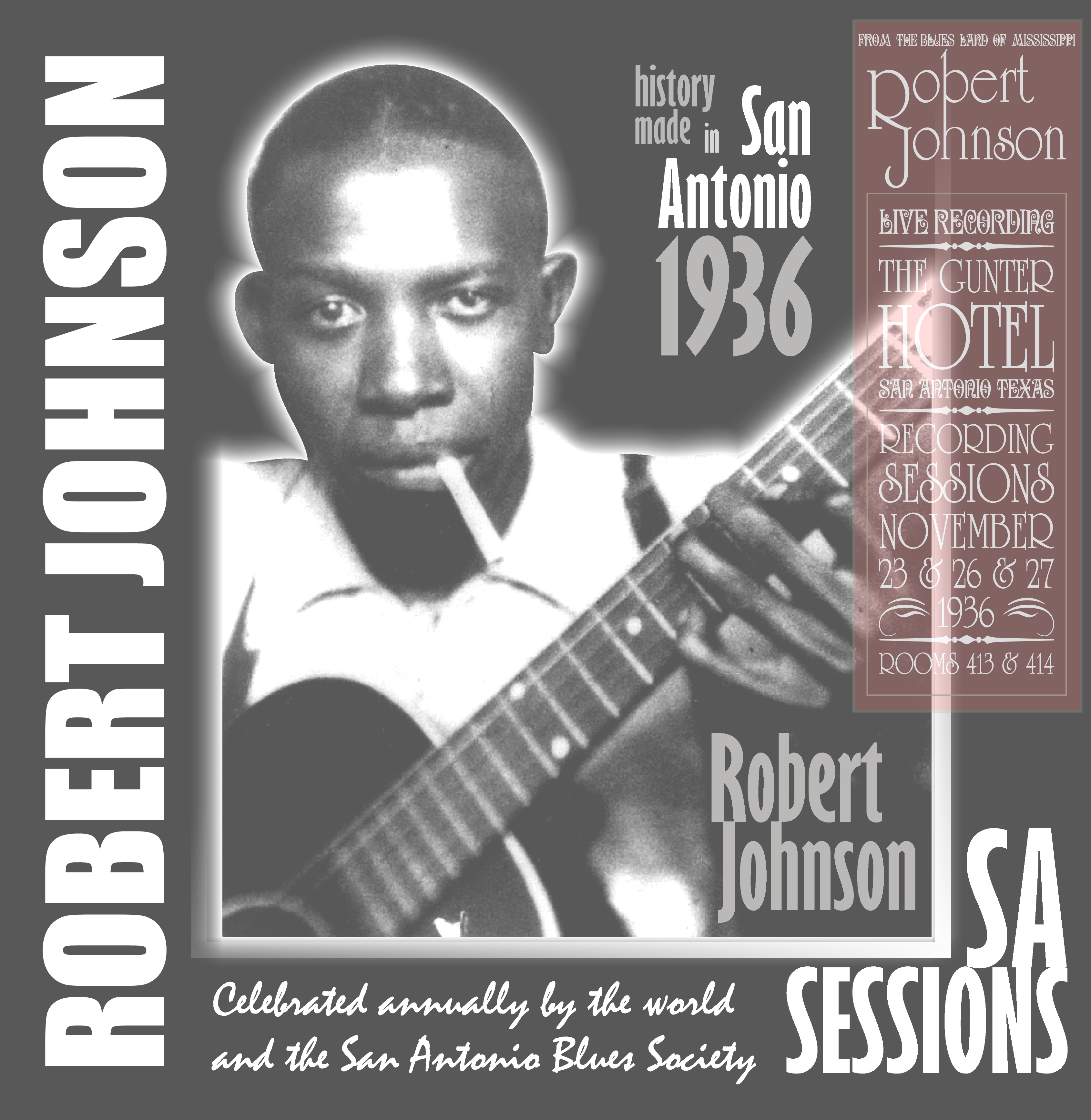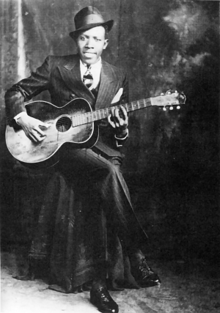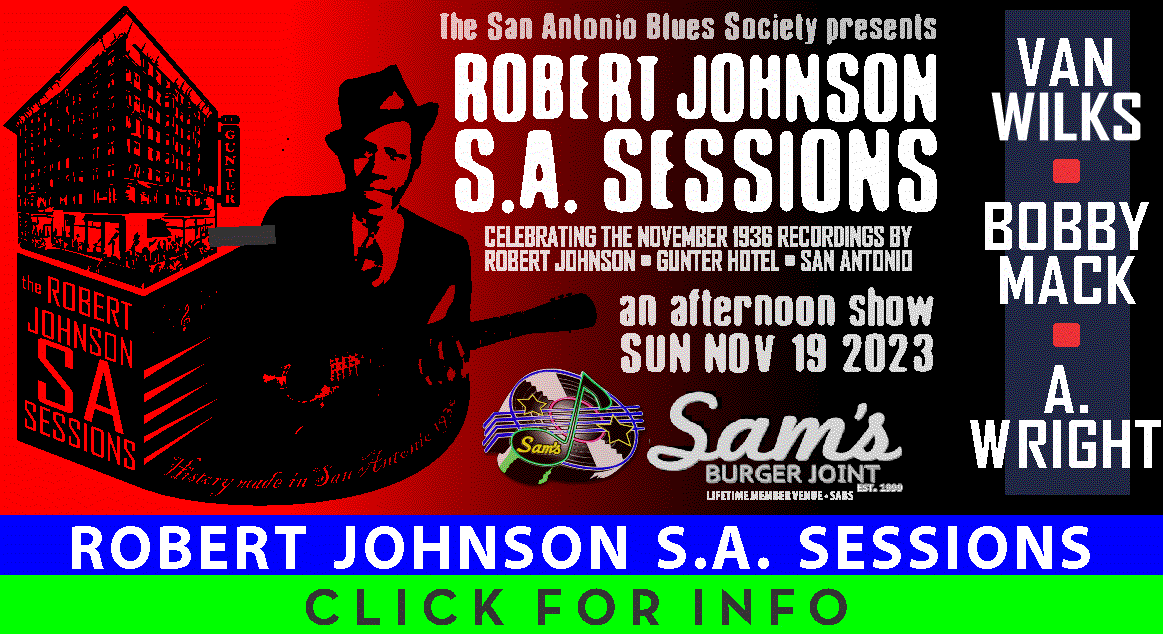| |
THE EARLY YEARS
Robert Leroy Johnson was born in Hazelhurst, Mississippi on May 8, 1911 to Julia Dodds and Noah Johnson. At the time, Julia was married to Charles Dodds, Jr. Going back a bit to 1907, Charles Dodds had left town for Memphis because of threats made against him. Dodds even changed his name to Charles Spencer. Shortly after her husband moved, Julia began the affair with Noah Johnson, resulting in Robert's birth in 1911. While Robert was still a "babe in arms", Julia took him and his baby sister with her as she traveled between migrant labor camps.
In 1914 Charles Spencer is back in the picture as he sends for Julia, Robert and baby sister. The three of them moved to Memphis, but soon afterwards Julia takes off and leaves the two children there. Spencer, who already had a large family, decides in 1918 to send Robert and his little sister to live with their mother Julia back in Robinsonville. Julia got remarried to Willie "Dusty" Willis. Robert spends the next ten or so years with Julia and Willie, attending school as Robert Spencer.
We are now in the late 1920's. School is not appealing to Robert, and he cites problems with his eyesight as a reason to drop out of school, and does so. It is then that he picks up the guitar and, as any upstart musician will, looks for musicians that he can learn from. Fortunately for Robert (and American music), Willie Brown was living in Robinsonville at the time. Also, Charlie Patton was travelling from town to town playing the juke joint circuit. Robert learned from both these renowned delta blues players, as well as Son House, who was close friends with Willie Brown.
It was not until his late teens that Robert learned of his father, Noah Johnson. Subsequently, he started going by Robert Johnson.
THE DELTA
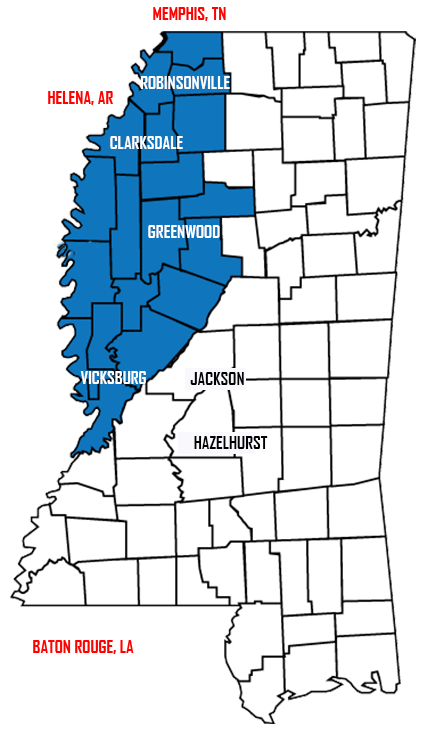 |
The Mississippi Delta encompasses most of the western edge of Mississippi from the northwestern top of the state on down to Vicksburg, tracing the Mississippi River. It's boundary on the east is the Yazoo River. About 200 miles tall and 87 miles wide. The intersection of highways 69 and 41 in Clarksdale is often referred to as The Crossroads, where one can deal their soul to the devil to become something they are not. With the amount of flooding, the land was fertile and supported one of the largest areas of cotton fields in the country. The population of the land was generally impoverished field laborers and farmers. For most of his early life, Robert Johnson's travels were up and down Hghway 49. Hazelhurst, his birthplace, is just south of Jackson in west central Mississippi. About four hours north is Robinsonville in Tunica County, where Johnson spent most of his youth. Forty miles southwest is Helena, Arkansas. And on southbound Highway 49 you go through Greenwood, the central eastern edge of the Mississippi Delta. |
YOUNG ADULTHOOD
Johnson is now in his late teens and decides to leave Julia and Willie, moving to Penton, MS, just a few miles north of Robinsonville. There he meets Virgina Travis in February of 1929. That summer, Johnson married 15-year old Virginia. They moved in with Johnson's half sister and her husband. Then, in 1930, the marriage saw tragedy when Virginia and child died during childbirth. Legend has it that Robert then shunned his lifestyle and devoted his life to blues music, between 1930 and 1931.
Johnson was introduced to Son House who was living in Robinsonville near his musical partner Willie Brown. As with Willie Brown and Charlie Patton, Johnson learned all he could from Son House. Though it was his harmonica playing that impressed people, Johnson's guitar playing was coming along and, upon his return to Robinsonville, would take everyone by surprise.
In 1931, Johnson leaves Robinsonville and heads back south towards his birth town of Hazelhurst, searching for his father. He meets renowned guitarist Isiah "Ike" Zinnerman from nearby Beauregard, Mississippi. They became friends and Robert learned techniques from Ike, practicing until they became his own. In the spring of 1931, Johnson marries Calletta "Callie" Craft, who was many years his senior. Calletta was completely devoted to Johnson, spiritually and financially, making it possible for him to hone his craft by spending his time studying under Zinnerman. He actually lived with Ike and family. They referred to their newly adopted family member as R.L., his initials. Over the next months Johnson experienced different music stylings in the local music scene, including the picking styles of Lonnie Johnson and Scrapper Blackwell. And following local traditions, it is rumored that Johnson and Zinnerman often practiced in a graveyard, maybe for the quiet, maybe for the atmosphere. The tale fed the lore of selling one's soul to the devil to master the guitar. The two played the local juke joints along with the nearby lumberyards that populated the fertile woodlands of the delta region. By the end, Robert Johnson had dramatically improved his finger picking and the bottleneck slide skills. For this he shad sought out Ike Zinnerman. His mission was now complete.
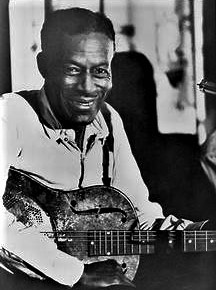
Son House
|
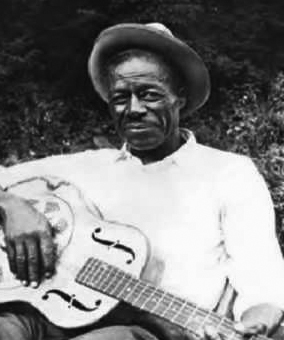
Willie Brown |
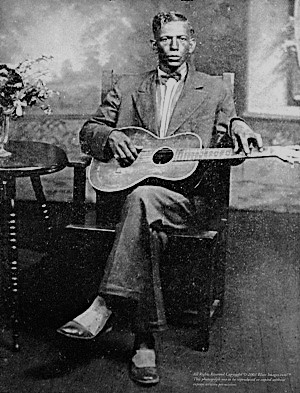
Charlie Patton |
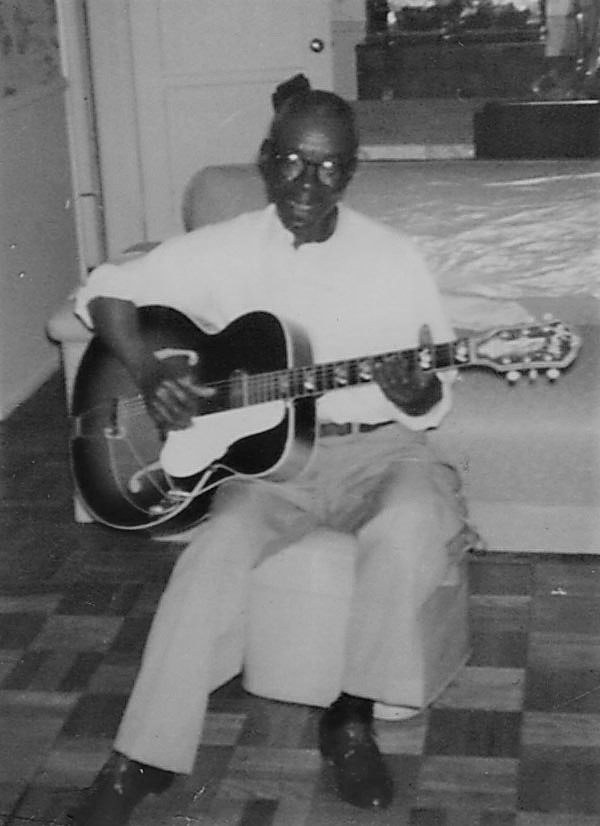
Ike Zinnerman (age 73) |
ROBERT JOHNSON RETURNS READY TO PLAY
Now a polished blues man, Robert Johnson returns to Robinsonville but for just a short while. He headed down Highway 61 to Highway 49 (The Crossroads at Clarksdale), final destination Helena, Arkansas just across the state border. Johnson was now with Estella Coleman and her son, Robert Lockwood, Jr. (known later by Robert Jr. LockwoodJohnson was now performing with the like of Elmore James and Howlin' Wolf. ). He now must have been his happiest. He was surrounded by his favorite music and musicians. On the road people were paying to see him play. He was in his prime and he was booking gigs. It's 1933 and Robert Johnson is He covered his home state of Mississippi and hit Memphis, St. Louis, Chicago, and Detroit -- major hubs the the newly emerging blues highway up and down the Mississippi RIver. And he played Texas and New York.
THE SAN ANTONIO RECORDINGS
The early 1900s, especially the 1920s, saw recordings of African-American musicians were on an increase. Music recorded by black artists sold, but really just in the African-American communities. These "race records" were becoming a hot item to the record labels as entertainment was becoming a major revenue source, both live and recorded. Don Law was in the business of finding new talent. Law was an immigrant from England. He came here in 1924 and was a farmer in Alabama. He then became a bookkeeper for Brunswick Records in Dallas. In 1931 Brunswick was bought by the American Record Company. ARC put Law together with Art Satherley to find talent. In 1936 talent scout Ernie Oertle introduced the two ARC talent hunters to Robert Johnson.
|
